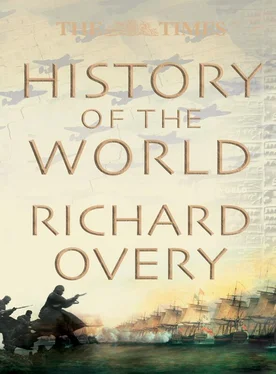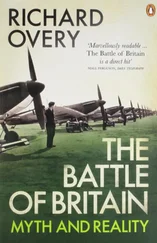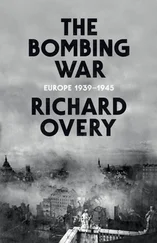The economic revolution was accompanied by other important changes. In Europe and the United States the idea of education for all replaced the traditional distinction between illiterate mass and the educated few. Education was basic for most people, but opportunities for higher forms of training or for university expanded throughout the 19th century and became general in the twentieth. Civil rights and the rule of law were applied in most European states and the settler communities overseas, and limited progress was made towards representative forms of government. One of the most striking aspects of the move to greater emancipation was the gradual recognition in the liberal West that women should have equal rights—social, sexual, political—with men, even if the principle has not always worked as it should. Finally, the idea of the modern nation-state, in which identity was derived from being a citizen of a particular nation, defined by territory, shared culture and language, although far from universal even in Europe in the 19th century (and certainly not applied to Europe’s empires), set the model that has been subsequently established worldwide. The United Nations now counts 195 sovereign states, all but three as members.
The impact of Western wealth, military advantage, technology and ambition on the rest of the world was catastrophic. India was conquered, the Mughal emperors overthrown, and British rule imposed. China succeeded in keeping the West at bay, but at the cost of regular punitive expeditions, and the final sapping of China’s traditional political system by Western-educated Chinese who wanted China to adopt modern politics and economics. The Ottoman Empire crumbled under the remorseless pressure of Europe, which took over the whole of North Africa and encroached on the Ottoman Middle East. The Empire finally collapsed in 1919 at the end of the First World War. Everywhere else traditional societies, long isolated from any contact with a wider world, were visited, annexed, fought over and incorporated into the Western orbit. What resulted was usually an unstable mix of tradition and novelty, the old order sufficiently challenged or undermined that it could no longer function effectively, the new order mediated by surviving social traditions, religious practices and native cultures. The one exception was Japan. Contact with the West in the 1850s was perceived to be an immediate threat. In 1868 the Tokugawa Shogunate was overthrown, the Meiji emperor restored, and a rapid process of modernization undertaken to shield Japan from Western imperialism. Within forty years Japan’s modern armed forces could defeat the much larger Russian army and navy in the war of 1904–5; in the 1930s Japan invaded large parts of China and in 1941 Japanese forces launched a swift and successful campaign against American and European territories in the Pacific and South-East Asia which was reversed only by the exploitation of Western technologies yet more advanced.
The changes ushered in by the rise of European and American power have developed exponentially. The history of the past 250 years shows a dizzying transformation: global horizons have narrowed with mass communication and the development of a homogenized consumer culture; a level of knowledge and technical achievement unimaginable a century ago makes it possible to explore planets millions of miles distant, to revisit the earliest moments of the universe, to understand the genetic codes that dictate human biology, to harness lasers and micro-electronic components to produce a technical base not only of exceptional sophistication, but one that is also democratic in its reach. Some sense of the sheer speed of change can be illustrated in numerous ways, but few examples are more remarkable than the difference between the colonial wars of the late 19th century, fought with Gatling machine guns, rifles and small artillery pieces and the Second World War fought only forty years later with tanks, high-speed aircraft, radar, radio, missiles, and, in its late stages, with jet aircraft and nuclear weapons.
The Western experience, for all its technical and social achievements, has nonetheless been profoundly ambiguous. There have been perhaps no other civilizations which have been so publicly anxious about the prospects for their survival, so fearful of pride before a fall. The two world wars, both generated in Europe, compromised that claim to be the heartland of modern civilization and a source of social progress and moral authority, which had been relayed throughout the last decades of the 19th century. Exporting ideas about civil rights and nationhood accelerated the decline and disappearance of the old European empires. The transfer of the British crown colony of Hong Kong to Chinese rule in 1997 marked a symbolic end to a long history of coercive European expansion and acknowledged China’s growing international stature. The export of Western technology and commercial skills resulted in the collapse of many European industries and the transfer of large-scale manufacturing to the rapidly growing economies of eastern and south-eastern Asia. The global reach of Western commerce and the remorseless march of English as the global language has produced a backlash against what are perceived to be new forms of imperialism, and against the crass failure of Western states to understand the complex differences that still mark off communities in Asia, Africa, Latin America or the Middle East from the Western model. Islamic terrorism is only one of the many fruits of hostility to the idea that somehow the Western model ought to be appropriate in any cultural or geographical context.
Where, then, is this history going? Accelerated change can be read several ways: it could either mean speeding downhill to the edge of the precipice, or climbing rapidly to a richer, more secure and more peaceable world. Historians would do well do be humble in the face of the future. The unpredictable and unpredicted can be found throughout the chapters that follow. How few commentators and Sovietologists thought in the late 1980s that the Soviet bloc would possibly collapse in a matter of a few years; how many observers thought, wrongly, that HIV/AIDS would provoke an unstoppable pandemic which would decimate the world’s population. One thing can be said with certainty: for all the talk of a new unipolar world built around the massive military power of the United States and the appeal of the Western model, the foreseeable future will have China, Russia, India and the Middle East, the great bulk of the world’s population, developing in ways that are not consistent with an ideal Western model, capable of exerting a growing influence on global economic structures and the distribution of political influence, able perhaps to restore at least some of that diversity in historical experience characteristic of all recorded history up to the 19th century.
Taking the longer view there is little to be said. A hundred human lives of 60 years will take us to 8,000 AD. Perhaps the acceleration of history will provoke a sudden crash long before that. There remain the awful paradoxes that the more ‘progress’ there has been, the more violence, discrimination and crime has been generated and the more economic desires are satisfied, the nearer the earth moves to ecological crisis. As Nietzsche remarked more than a century ago, ‘the universe does not need man’. Human history may well be finite. On the other hand, the history of the world hitherto has shown man to be a remarkably adaptable, ambitious, unscrupulous, technically adept creature. This history so far is no simple parable of survival and triumph; the future of the world may have to be just that.
Richard Overy, 2008
ONE HUMAN ORIGINS AND EARLY CULTURES
Recorded history is only the tip of an iceberg reaching back to the first appearance on earth of the human species. Anthropologists, prehistorians and archaeologists have extended our vista of the past by hundreds of thousands of years: we cannot understand human history without taking account of their findings. The transformation of humankind (or, more accurately, of certain groups of humans in certain areas) from hunters and fishers to agriculturists, and from a migratory to a sedentary life, constitutes the most decisive revolution in the whole of human history. The climatic and ecological changes which made it possible have left their mark on the historical record down to the present day.
Читать дальше










